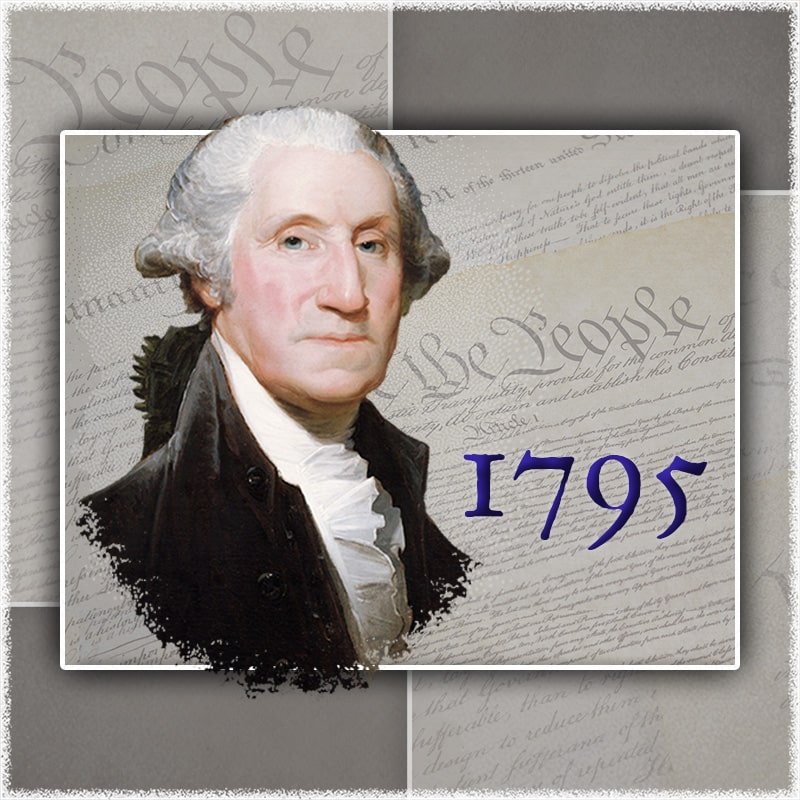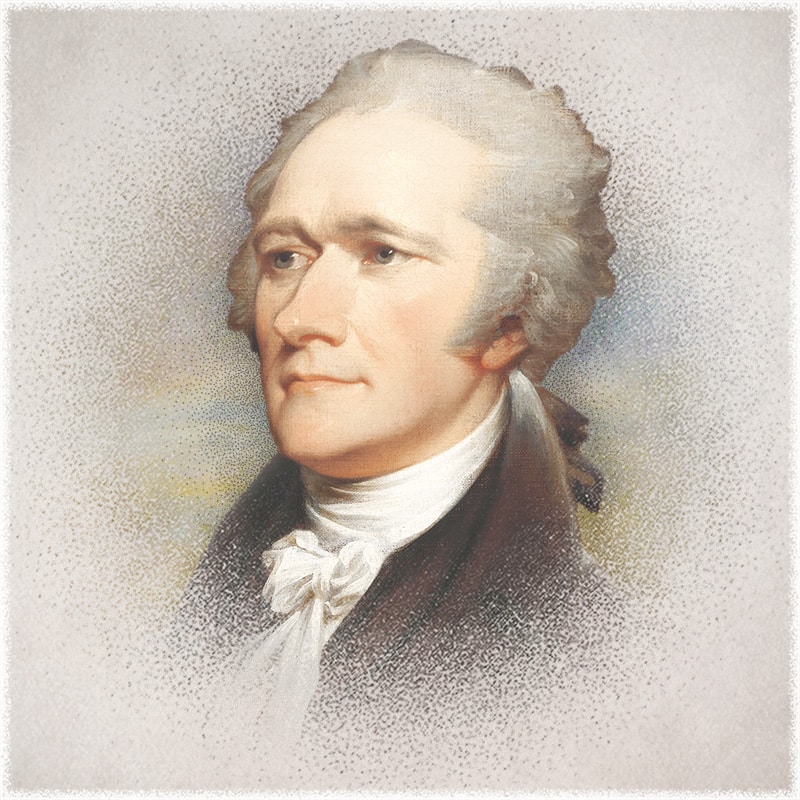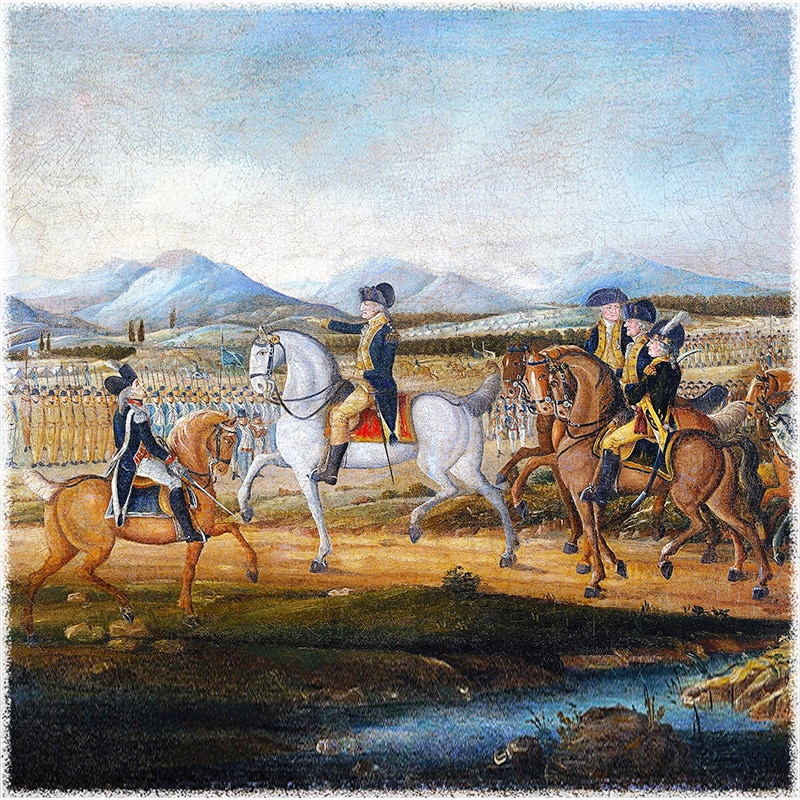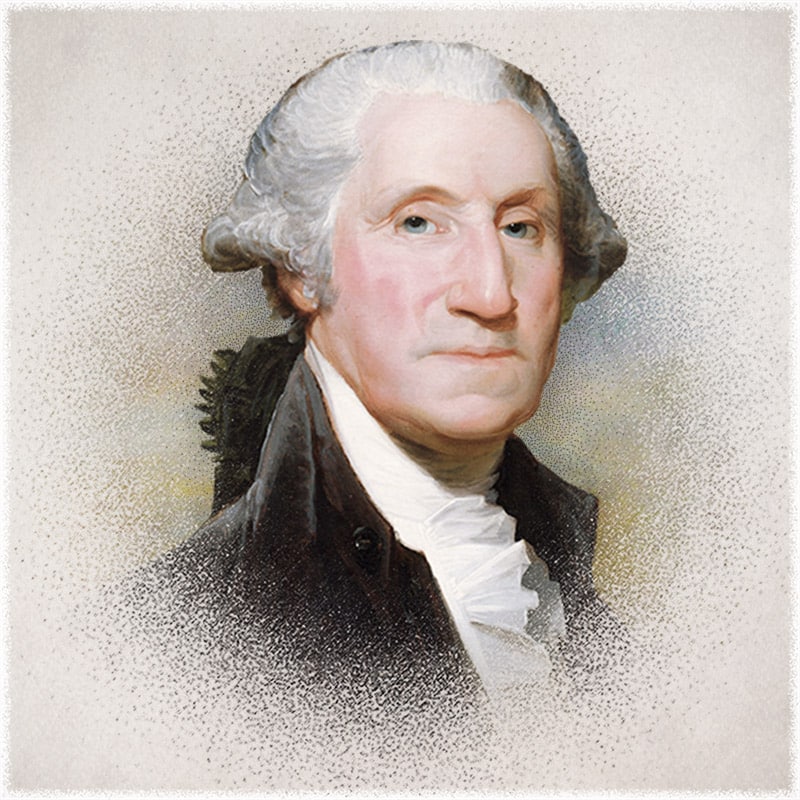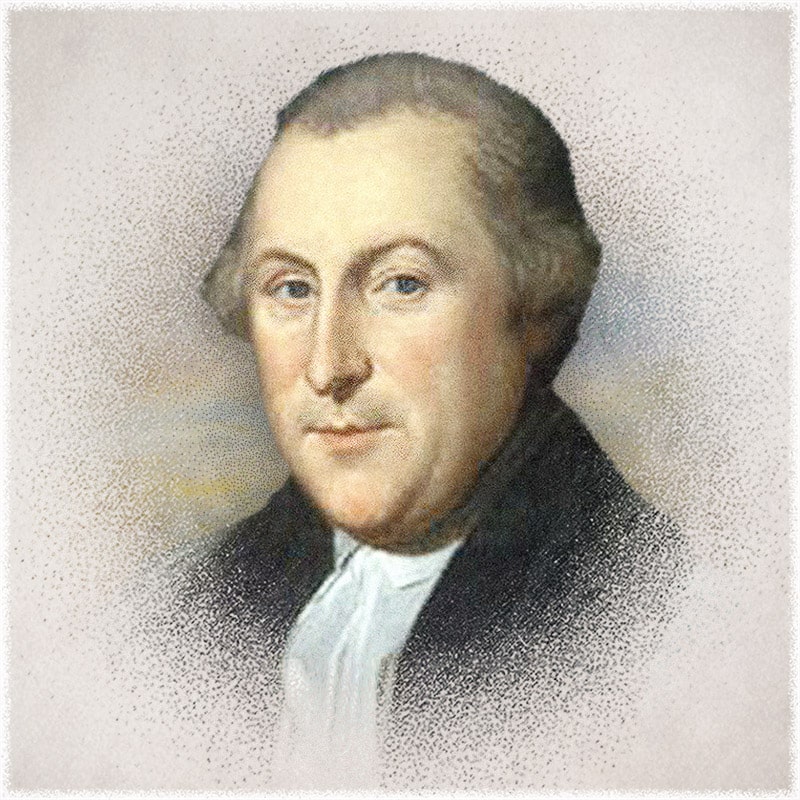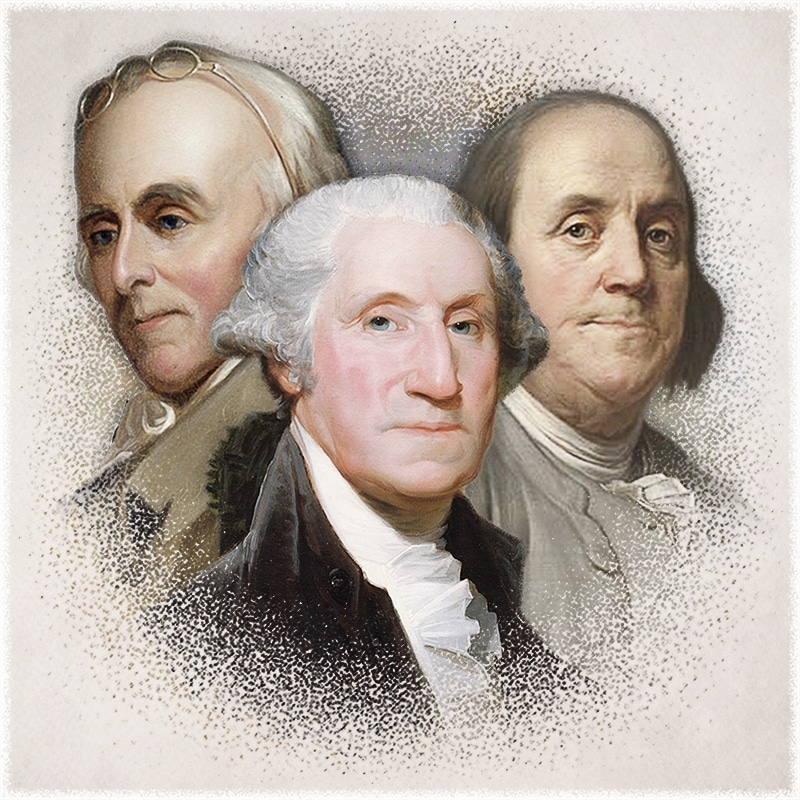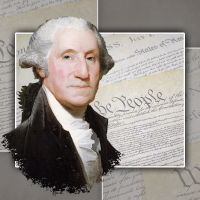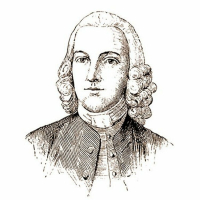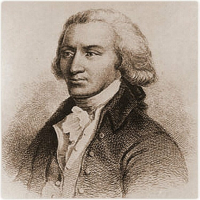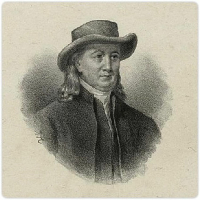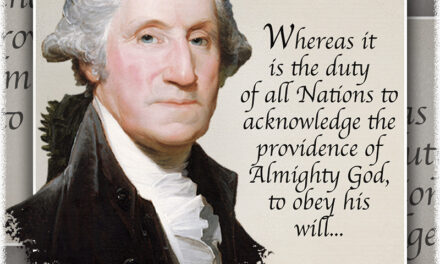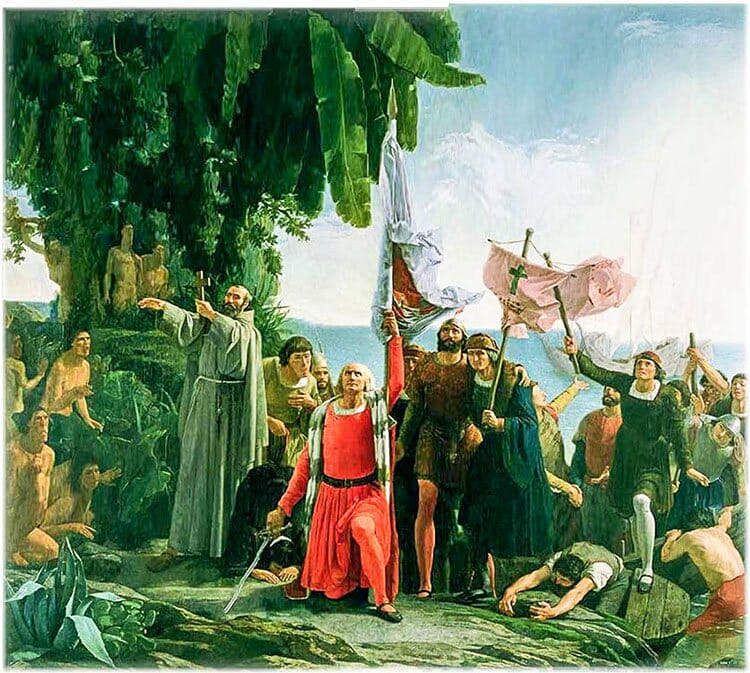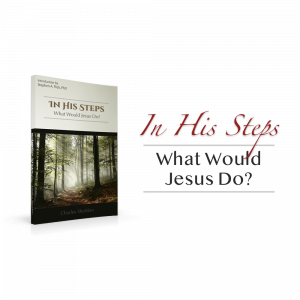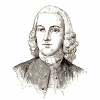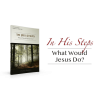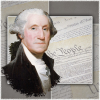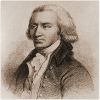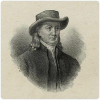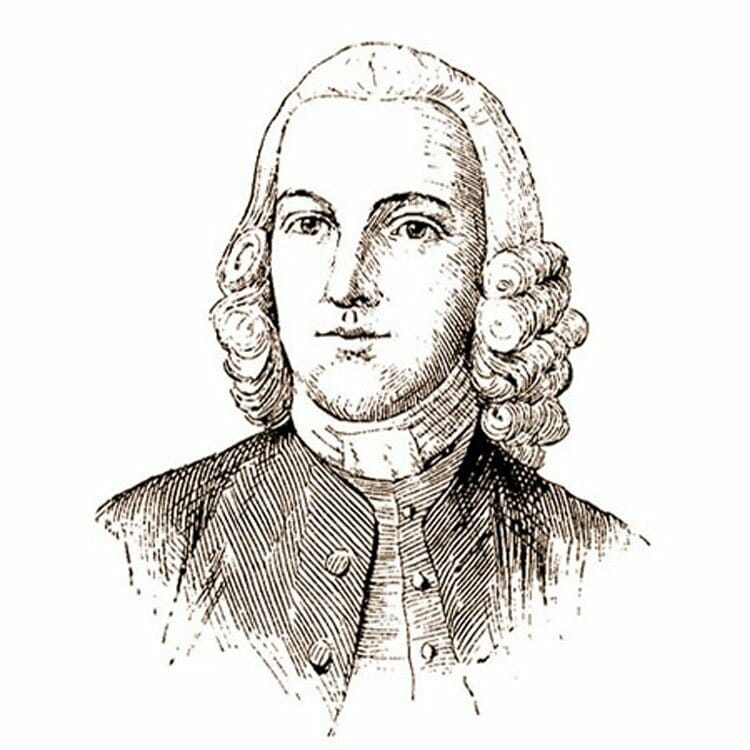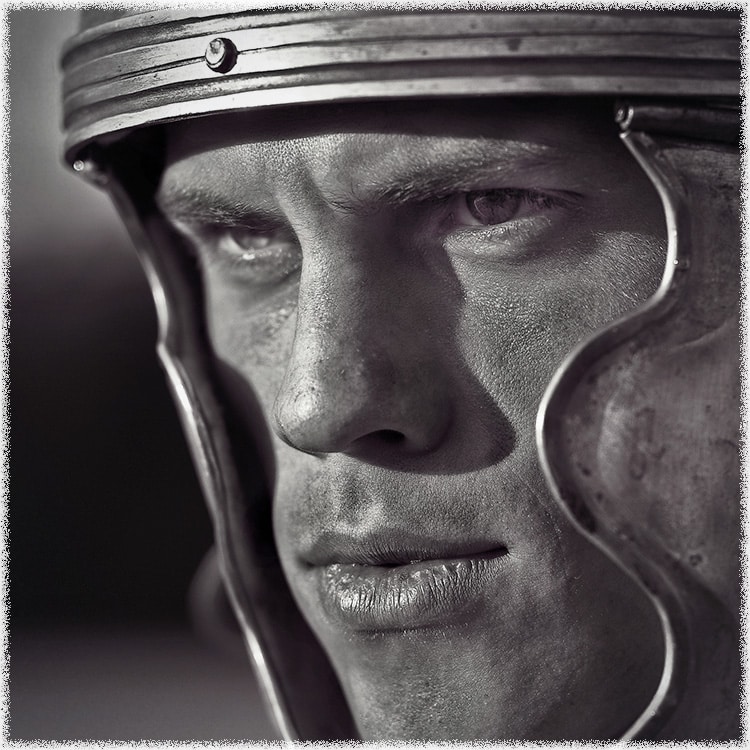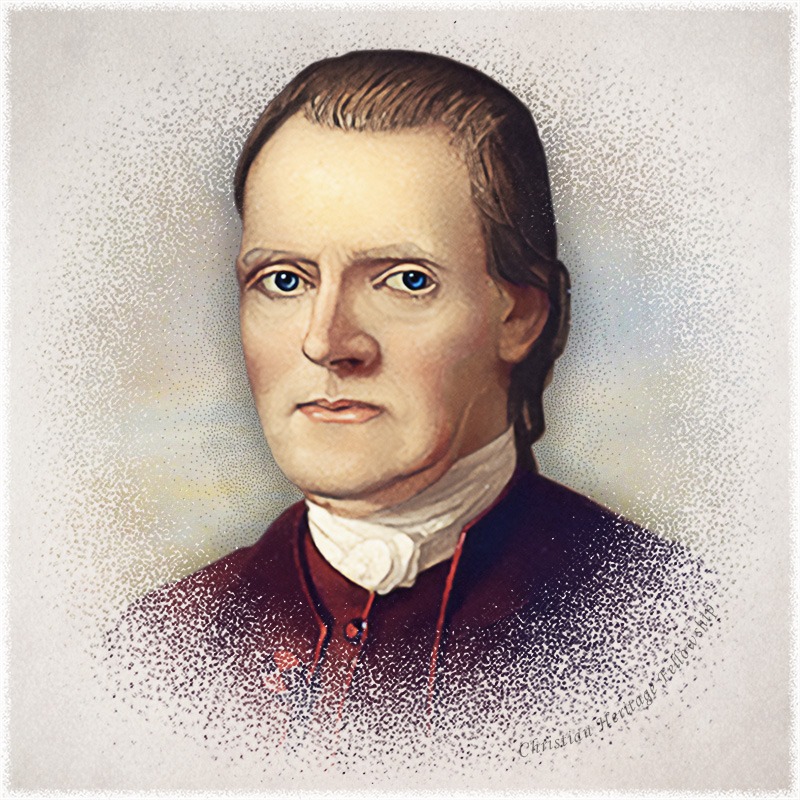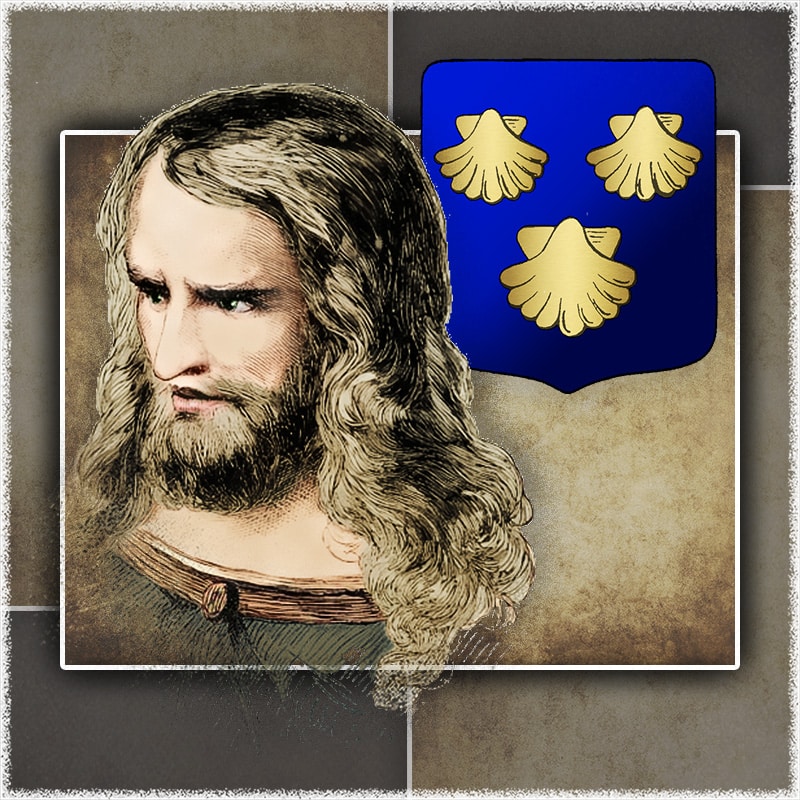Because nearly all American colonies under British control had established state churches,[1] America's Founding Fathers were not willing to raise issues that would unnecessarily divide them in their efforts to establish a stable government. For this reason, a promise was made not to establish a federal or national church when writing the Constitution and amended Bill of Rights. However, as the following proclamation demonstrates, America's Founders were not ashamed of their Christian Faith. The history behind the proclamation and its observance by President Washington will deepen the reader’s appreciation of this event.Washington's 1795 Thanksgiving Proclamation
Because nearly all American colonies under British control had established state churches,[1] America's Founding Fathers were not willing to raise issues that would unnecessarily divide them in their efforts to establish a stable government. For this reason, a promise was made not to establish a federal or national church when writing the Constitution and amended Bill of Rights. However, as the following proclamation demonstrates, America's Founders were not ashamed of their Christian Faith. The history behind the proclamation and its observance by President Washington will deepen the reader’s appreciation of this event.Washington's 1795 Thanksgiving Proclamation
Table of Contents
Washington's 1795 Thanksgiving ProclamationDuring the American War of Independence, the central or federal government accumulated a debt of fifty-four million dollars,[2] and the states had collectively amassed additional debts totaling twenty-five million dollars. Secretary of the Treasury Alexander Hamilton proposed that both debts be consolidated into a single debt to be funded by the federal government, which congress approved in June and July 1790.
To pay the debt combined by Congress, Hamilton proposed that a "sin tax" be levied against all domestically distilled spirits, though it became known as the "whiskey tax". This tax was the first tax levied by the national government on a domestic product. Hamilton's proposed tax was passed by Congress and became law in March 1791. Given the fact that the tax was issued against each gallon of distilled spirits, transportation costs were higher for farmers and distillers who were more remote from towns and cities in the East. As a result, these western producers realized diminished profits.
In the West at that time, Pittsburgh, Pennsylvania became a hotbed of resistance to the tax with violence breaking out as early as September 1791.[3] From late 1791 until 1794, large numbers of individuals in Fayette, Westmoreland, Washington, and Allegheny, and part of Bedford counties in Western Pennsylvania[4] offered vigorous resistance to the enforcement of the tax. In July 1794, more than 500 armed men attacked the tax inspector General John Neville. President Washington responded by sending peace negotiators to Western Pennsylvania, and at the same time called upon governors to send a militia force to enforce the tax. Pennsylvania, New Jersey, Maryland, and Virginia responded to the request, sending a combined total of nearly 13,000 militiamen. Washington rode at the head of the army to suppress the insurrection, but upon the approach of Washington and his militia, the rebels dispersed to their homes. About twenty men were arrested, but all were subsequently acquitted or pardoned, and in the early 1800s, the tax was repealed under Thomas Jefferson's administration.
Where Washington Observed the Proclamation
On October 3, 1789, Mr. Washington issued the first presidential thanksgiving proclamation under the United States Constitution. Six years later, on January 1, 1795, he issued his second thanksgiving proclamation to be observed by the states. In this second proclamation—just as Congress had done on sixteen occasions during the American Revolution[5]—Washington designated a date on which the day of thanksgiving should be observed. In his proclamation, he called upon "all persons whomsoever within the United States to set apart and observe Thursday the nineteenth day of February next as a day of public Thanksgiving and prayer." Following his admonish to the nation, Mr. Washington made his way to the "Nation's Church" that Thursday.
Christ Episcopal Church had served as the home church of several prominent Founding Fathers and was the preferred place of worship for many in Congress during the Revolution when they were away from their places of residence. Christ Church was prominent in the founding of America, and for this reason was known as the "Nation's Church". It was also the home church of many patriots such as Betsy Ross. Their pastors had been the first chaplains to Congress, among who was numbered Bishop William White. Together with prominent Founding Father Dr. Benjamin Rush, Bishop White helped to start the Sunday School movement and Bible societies in Philadelphia that other Founding Fathers would employ to perpetuate the biblical principles of American liberty. On the day designated in Washington's thanksgiving proclamation, Bishop White delivered, A Sermon, on the Reciprocal Influence of Civil Policy and Religious Duty. Delivered in Christ Church, in the City of Philadelphia, on Thursday, the 19th of February 1795, Being a Day of General Thanksgiving with President George Washington in attendance.[6]
January 1, 1795 Presidential Thanksgiving Proclamation
By the President of the United States of America
A Proclamation
When we review the calamities which afflict so many other Nations, the present condition of the United States affords much matter of consolation and satisfaction. Our exemption hitherto from foreign war, an increasing prospect of the continuance of that exemption, the great degree of internal tranquility we have enjoyed, the recent confirmation of that tranquility by the suppression of an insurrection which so wantonly threatened it, the happy course of our public affairs in general, the unexampled prosperity of all classes of our Citizens—are circumstances which peculiarly mark our situation with indications of the Divine Beneficence towards us. In such a state of things it is, in an especial manner, our duty as a people, with devout reverence and affectionate gratitude, to acknowledge our many and great obligations to Almighty God and to implore him to continue and confirm the blessings we experience.
Deeply penetrated with this sentiment I George Washington President of the United States do recommend to all Religious Societies and Denominations and to all persons whomsoever within the United States to set apart and observe Thursday the nineteenth day of February next as a day of public Thanksgiving and prayer; and on that day to meet together and render their sincere and hearty thanks to the great ruler of Nations for the manifold and signal mercies, which distinguish our lot as a Nation; particularly for the possession of Constitutions of Government which unite and by their union establish liberty with order, for the preservation of our peace foreign and domestic, for the seasonable control which has been given to a spirit of disorder in the suppression of the late insurrection [associated with the Whiskey Rebellion], and generally for the prosperous course of our affairs public and private; and at the same time humbly and fervently to beseech the kind author of these blessings graciously to prolong them to us—to imprint on our hearts a deep and solemn sense of our obligations to him for them—to teach us rightly to estimate their immense value—to preserve us from the arrogance of prosperity and from hazarding the advantages we enjoy by delusive pursuits—to dispose us to merit the continuance of his favors, by not abusing them, by our gratitude for them, and by a correspondent conduct as citizens and as men—to render this Country more and more a safe and propitious asylum for the unfortunate of other Countries—to extend among us true and useful knowledge—to diffuse and establish habits of sobriety, order, morality, and piety and finally to impart all the blessings we possess, or ask for ourselves, to the whole family of mankind.
In Testimony whereof I have caused the Seal of the United States of America to be affixed to these presents and signed the same with my hand. Done at the City of Philadelphia the First day of January one thousand seven hundred and ninety-five, and of the Independence of the United States of America the nineteenth.
Go: Washington
By the President
Edm: Randolph[7]
Conclusion: Christian Proclamations
One of the thousands of pieces of evidence that America's Founding Fathers never attempted to separate their Christian Faith from politics are the hundreds of fasting, prayer, and thanksgiving proclamations issued in the formative years of America. Though most of these proclamations were issued at the state level, Mr. Washington's foregoing proclamation is but one of a number that were issued by the Founding Fathers at the federal level. For those honest enough to deal with the facts, America's Christian heritage has been clearly strewn throughout her history.
[1] Responding to the request by a minority to abolish congressional chaplains, the Judiciary Committee of the House of Representatives wrote (March 27, 1854): "The sentiment of the whole body of American Christians is against a union with the State. A great change has been wrought in this respect. At the adoption of the constitution, we believe every State—certainly ten of the thirteen—provided as regularly for the support of the church, as for the support of the government: one, Virginia, had the system of tithes. Down to the Revolution, every colony did sustain religion in some form. It was deemed peculiarly proper that the religion of liberty should be upheld by a free people. Had the people, during the Revolution, had a suspicion of any attempt to war against Christianity, that Revolution would have been strangled in its cradle. At the time of the adoption of the constitution and the amendments, the universal sentiment was that Christianity should be encouraged—not any one sect. Any attempt to level and discard all religion, would have been viewed with universal indignation." House United States Congress, Chaplains in Congress and in the Army and Navy (House Report 124, 33rd Congress, 1st session, March 27, 1854), 6. The entire report is contained in pages 1-10.
[2] Ron Chernow, Alexander Hamilton (New York: Penguin Press, 2004), 297.
[3] American State Papers Class X Miscellaneous: Documents, Legislative and Executive of the Congress of the United States (Washington: Gales and Seaton, 1834), 1:107.
[4] American State Papers Class X Miscellaneous, 1:112.
[5] See Stephen A. Flick, When Congress Asked America to Fast, Pray, and Give Thanks to God (Clinton, Tennessee: Christian Heritage Fellowship, Inc., 2017).
[6] William White, A Sermon, on the Reciprocal Influence of Civil Policy and Religious Duty. Delivered in Christ Church, in the City of Philadelphia, on Thursday, the 19th of February 1795, Being a Day of General Thanksgiving (Philadelphia: 1795).
[7] George Washington, The Papers of George Washington, Presidential Series (Charlottesville; London: University Press of Virginia., 1993), 17:354–358.

